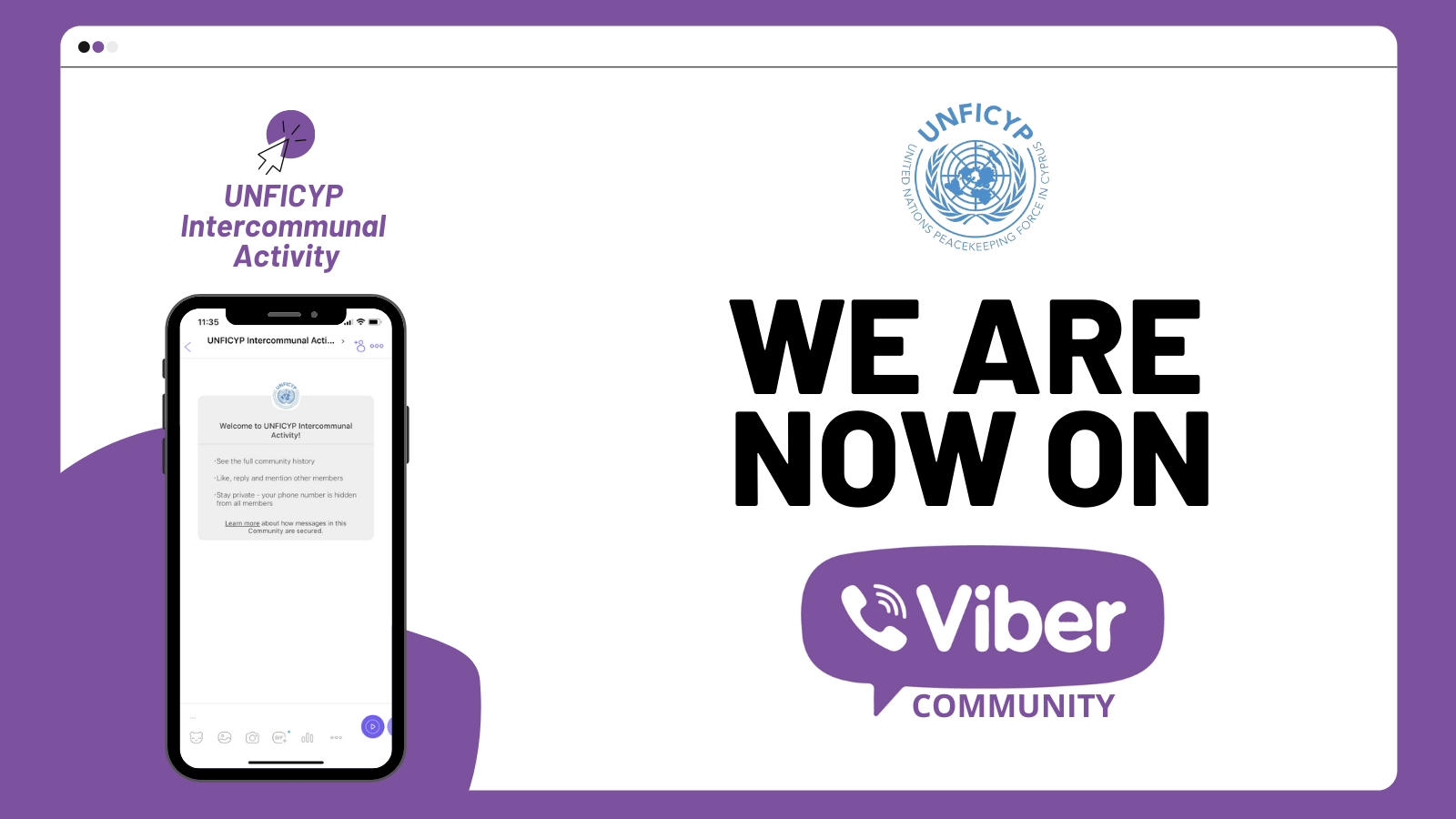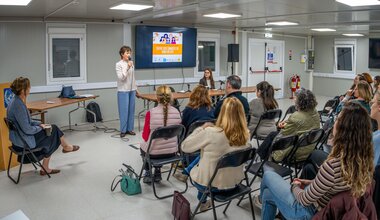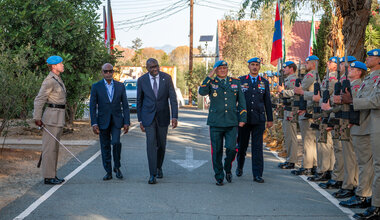Bridging the divide: Meltem Burak and Nicolas Kyriakides call for inclusion and innovation to bring peace to Cyprus
This story is part of the “People for Peace” story series. More than two million peacekeepers have worked for peace under the UN flag, and they are not alone in their efforts: peacekeeping is powered by strong and diverse partnerships. In this series, we bring you the voices of peacekeepers and their partners across the world.
This March marked both the 60 years of the United Nations Peacekeeping Force in Cyprus (UNFICYP) and Women’s History Month. To mark the occasion, we are highlighting two activists who are advocating for peace on the island and for the inclusion of women in peace efforts.
UNFICYP was established by the Security Council in 1964, to prevent further fighting by the Greek Cypriot and Turkish Cypriot communities. After the hostilities of 1974, the Council mandated the Force to perform additional certain functions. In the absence of a political settlement to the Cyprus problem, UNFICYP has remained on the island to supervise ceasefire lines, maintain a buffer zone, undertake humanitarian activities and support the Good Offices mission of the Secretary-General. After many decades, sustainable peace will require approaches that represent Cypriots from across the divide.
Today we feature the voices of Cypriots Meltem Burak and Nicolas Kyriakides, who are taking action for peace in Cyprus and promoting women’s engagement. Their commitment to intercommunal dialogue and inclusivity is paving the way for a harmonious future on the island.
Meltem Burak, peace activist, education and media professional
The importance of inclusion
“We need to understand the relationship between culture and peacebuilding, because peace is never a political treaty that is signed between a couple of men.
Despite years of peace negotiations efforts have repeatedly faltered, leaving communities despondent. One significant reason for these failures is the absence of women at the peace negotiation tables, which are predominantly monopolized by white, middle-aged, cisgender men who don't fully grasp the complexity of today's world.
Sustainable peace needs to be implemented from the ground up by non-governmental organizations, activists, academics, and citizens. All individuals share a responsibility in ensuring women are included in those efforts.
Taking action
My sense of responsibility is deeply rooted in my upbringing in an island torn by conflict and patriarchy. Cyprus exemplifies how conflict and patriarchy perpetuate each other. I was subjected to indoctrination from an early age, in a culture that perpetuated ideas of our two communities and that enforced gender norms that never resonated with me. While progress has been made through the courageous actions of many women, these challenges persist, making peace difficult to reach, not least because women are excluded from negotiation tables.
This motivated me to focus on cross-cultural, inclusive peacebuilding, which led to the creation of Sesta, a culture podcast featured on the trilingual ‘Island Talks’ podcast station. Serving as a peacebuilding tool, Sesta provides a platform for artists and intellectuals who use culture to challenge binary perspectives on gender and cultural backgrounds in Cyprus. The podcast aims to highlight the voices of creative individuals tirelessly working to cultivate a culture of peace amidst the intractable conflict.
Most of the time the value of arts and culture is very much undermined. But when it comes to peace, arts and culture are very important because they provide a safe space for expression. In my experience, artistic projects that tackle intergenerational trauma like war or sexual violence, are critical because they make us vulnerable - and we have to acknowledge our wounds to be able to heal.
Designed with an intersectional approach, Sesta helps disseminate the voices of peace for the collective effort of peacebuilding. It recognizes that peace is more than political treaties negotiated by a couple of men. We need to acknowledge that sustainable peacebuilding hinges on the equitable participation of individuals of all communities and all genders.”
Nicolas Kyriakides, founder and executive president of the Cyprus Forum
A need for new approaches
“Growing up on the divided island of Cyprus, I have been deeply impacted by the enduring conflict and the need for innovative approaches to peacebuilding. Citizens are under the illusion that democracy and peace will keep happening without them and that things cannot get worse. The crucial question is, how do you get citizens reengaged and interested again?
To respond to global problems and transform our society we need to push for more inclusive and innovative policies and creative thinking. Therefore first, we had to narrow the gap between the citizens and the decision-makers and find ways to become more active as citizens and influence the decision-makers.
Taking action
In February 2012, I co-founded Oxygono, a space to share political views outside the usual party politics. Recognising the need for a fresh voice in the political landscape, particularly among millennials, we sought to challenge the status quo and advocate for change.
Our mission is to improve the policymaking process, foster transparency, and promote participatory democracy. The annual Cyprus Forum, launched in 2020, emerged as our flagship initiative, bringing together diverse stakeholders to discuss sustainable policies and inclusivity.
Serving as a catalyst for change, the forum fosters dialogue, debate, and actionable outcomes on key policy issues. Emphasizing inclusivity, we actively engage both Greek and Türkish Cypriots, promoting intercommunal dialogue, trust-building, and cooperation.
One of the core principles of the Cyprus Forum is gender equality and the inclusion of women in the policymaking processes. It is important for us to have a strong presence of women in the discussions, as Cyprus policymaking lacks women’s participation, and for too long, the political arena has been dominated by men. With both Turkish and Greek Cypriots present, the forum bridges divides and hopefully paves the way for a prosperous Cyprus.
 UN
UN United Nations Peacekeeping
United Nations Peacekeeping






